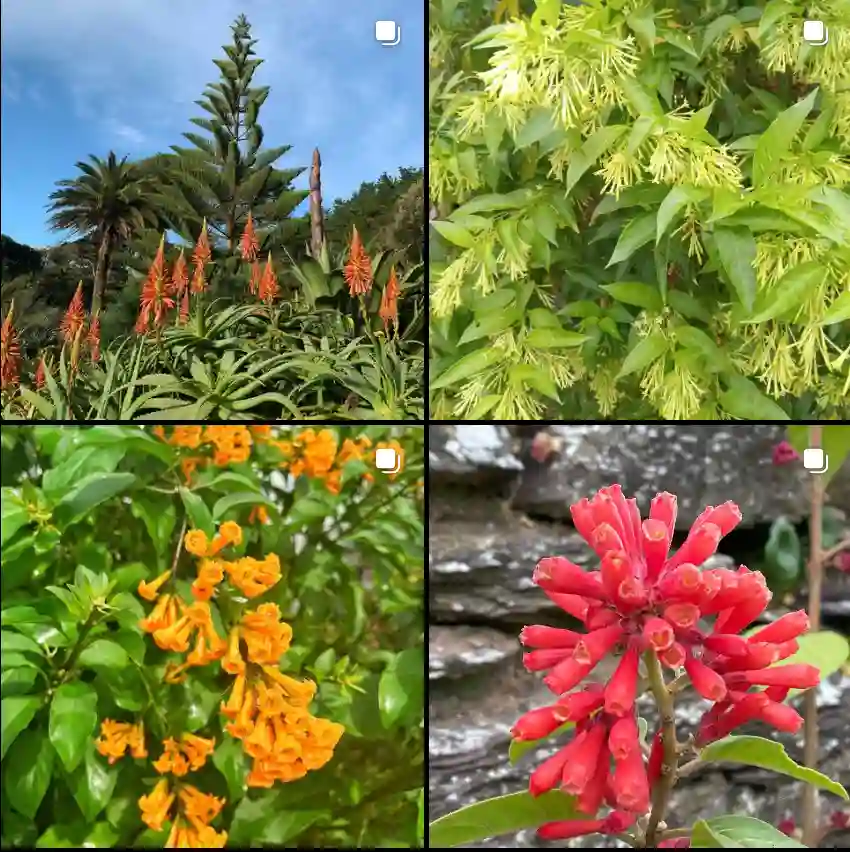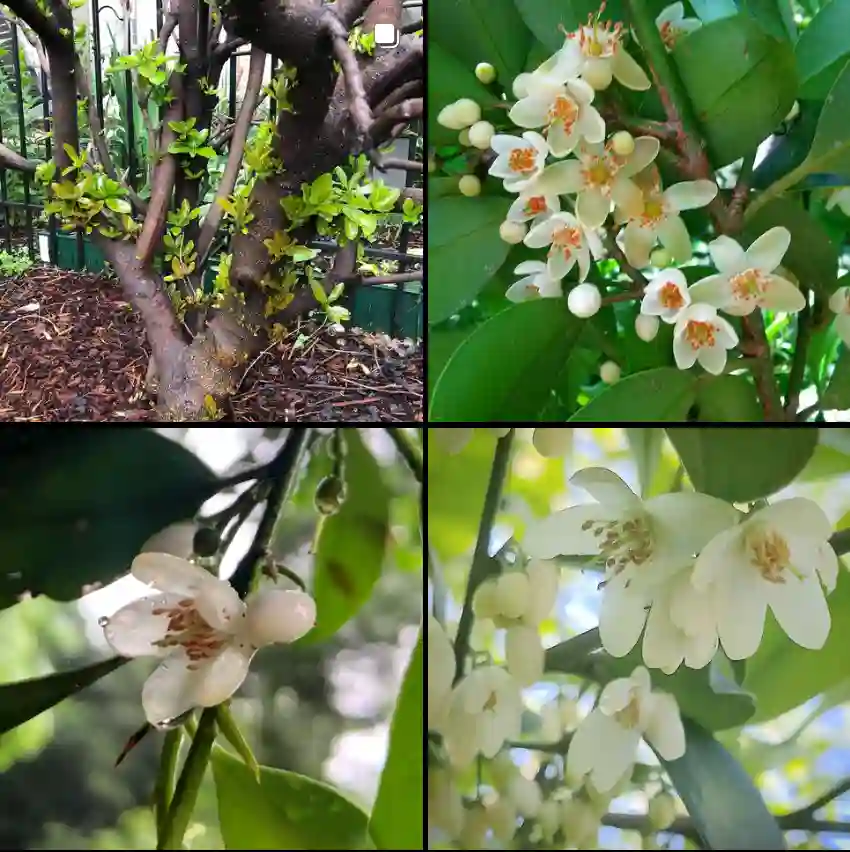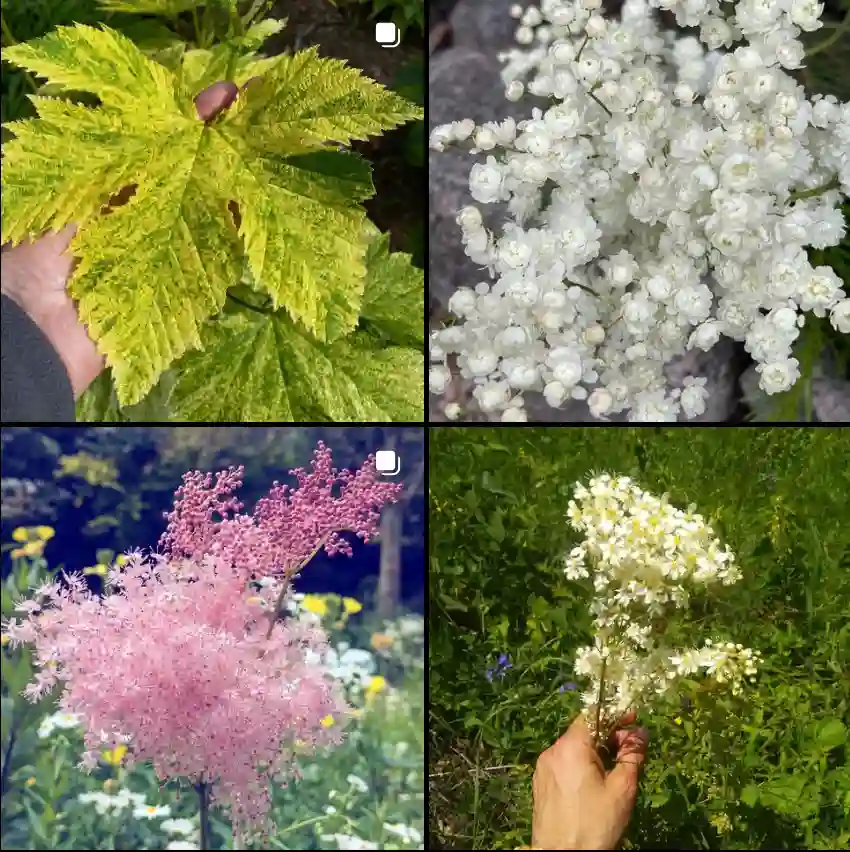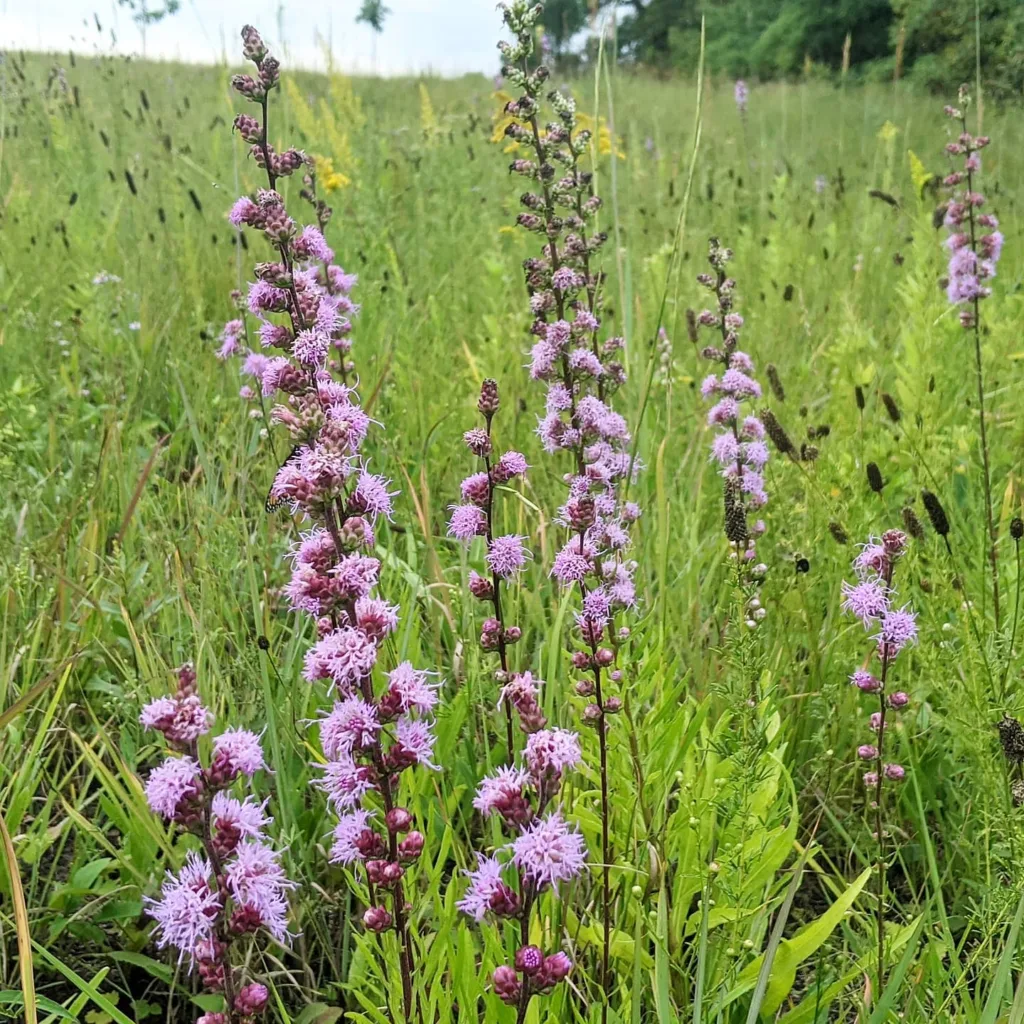December 25 – Ledebouria
"Ledebouria, the silver squill, defines December 25."
Ledebouria symbolizes mystery and elegance. Your quiet grace and enigmatic charm make you stand out. Like its intricate patterns, you possess a deep, captivating beauty that draws people in.
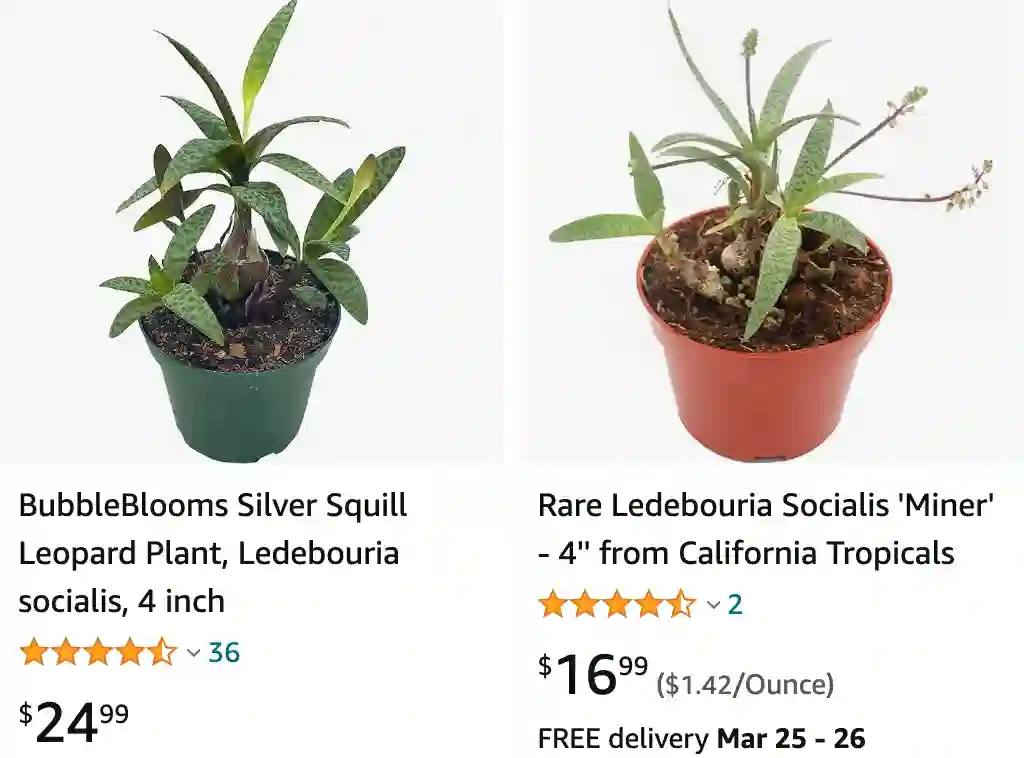
Ledebouria: My Little Obsession
Hi, I’m Ferb Vu, and I have a confession. I’m a bit obsessed with Ledebouria. You might be thinking, “Lede-what-now?” Don’t worry, you’re not alone. These fascinating little plants fly under the radar for many, but once you get to know them, their charm is hard to resist.
Ledebouria are a genus of bulbous perennials native mostly to Africa. They’re part of the Asparagaceae family, which puts them in the same extended family as asparagus (surprising, right?) and hyacinths. But unlike their more famous relatives, Ledebouria are prized for their foliage rather than their flowers.
A Kaleidoscope of Colors and Patterns
What captivates me about Ledebouria is the sheer diversity of their leaves. They come in a stunning array of colors and patterns, seemingly designed by an artist with a penchant for the abstract. Some sport silvery-green leaves with darker green spots, like a leopard’s coat. Others have stripes, blotches, or even intricate marbling. And the colors! Deep purples, vibrant greens, and even hints of pink and red can be found in this remarkable genus.
It’s like having a miniature art gallery in your own home. Each pot of Ledebouria is a unique masterpiece, and I find myself constantly drawn to their intricate patterns and subtle color shifts.
More Than Just a Pretty Face
But Ledebouria are more than just pretty faces. They’re also incredibly tough and easy to care for. They thrive in well-draining soil and bright, indirect light, making them perfect for both indoor and outdoor cultivation. Plus, they’re relatively drought-tolerant, which is a major bonus for someone like me who occasionally forgets to water.
I’ve found that Ledebouria are also quite adaptable. They can tolerate a wide range of temperatures and humidity levels, and they’re not particularly fussy about soil type. This makes them ideal for beginner gardeners or anyone who wants a low-maintenance plant that still packs a visual punch.
A Growing Collection
My fascination with Ledebouria started with a single plant, a Ledebouria socialis with its classic green and purple spotted leaves. But that one plant quickly turned into two, then four, and now… well, let’s just say my collection has grown considerably.
Here are:
- Ledebouria socialis (Silver Squill) – The classic, and for good reason. Its silvery leaves with purple spots are a timeless combination. Plant FAQs: Ledebouria Socialis – Silver Squill
- Ledebouria ovatifolia – Known for its deep purple, almost black leaves. A real statement piece.
- Ledebouria cooperi – This species has long, narrow leaves that are heavily spotted with dark green.
- Ledebouria galpinii – This one is a bit more unusual, with textured leaves and delicate pink flowers.
- Ledebouria apertiflora (Baker) Jessop
- Ledebouria asperifolia (van der Merwe) S.Venter
- Ledebouria atrobrunnea S.Venter
- Ledebouria bladeniana D.M.Cumming
- Ledebouria caesiomontana Hankey & N.Hahn
- Ledebouria camdebooensis Hickson & D.H.Schnabel
- Ledebouria camerooniana (Baker) Speta
- Ledebouria confusa S.Venter
- Ledebouria cordifolia (Baker) Stedje & Thulin
- Ledebouria coriacea S.Venter
- Ledebouria corrugata D.M.Cumming
- Ledebouria cremnophila S.Venter & van Jaarsv.
- Ledebouria crispa S.Venter
- Ledebouria dolomiticola S.Venter
- Ledebouria edulis (Engl.) Stedje
- Ledebouria ensifolia (Eckl.) S.Venter & T.J.Edwards
- Ledebouria fishrivierensis D.M.Cumming
- Ledebouria floribunda (Baker) Jessop
- Ledebouria glauca S.Venter
- Ledebouria grandifolia (Balf.f.) A.G.Mill. & D.Alexander
- Ledebouria hardyi J.C.Manning
- Ledebouria hyderabadensis M.V.Ramana, Prasanna & Venu
- Ledebouria hypoxidioides (Schönland) Jessop
- Ledebouria inquinata (C.A.Sm.) Jessop
- Ledebouria insularis A.G.Mill.
- Ledebouria karnatakensis Punekar & Lakshmin.
- Ledebouria kirkii (Baker) Stedje & Thulin
- Ledebouria lepida (N.E.Br.) S.Venter
- Ledebouria leptophylla (Baker) S.Venter
- Ledebouria lilacina (Fenzl ex Endl.) Speta
- Ledebouria loskopica Hankey
- Ledebouria luteola Jessop
- Ledebouria macowanii (Baker) S.Venter
- Ledebouria maesta (Baker) Speta
- Ledebouria marginata (Baker) Jessop
- Ledebouria minima (Baker) S.Venter
- Ledebouria mokobulanensis Hankey & T.J.Edwards
- Ledebouria monophylla S.Venter
- Ledebouria nitida (Eckl.) J.C.Manning & Goldblatt
- Ledebouria nossibeensis (H.Perrier) J.C.Manning & Goldblatt
- Ledebouria obstii (W.Heering) Mart.-Azorín, M.B.Crespo & M.Á.Alonso
- Ledebouria ovalifolia (Schrad.) Jessop
- Ledebouria papillata S.Venter
- Ledebouria pardalota S.Venter
- Ledebouria parvifolia S.Venter
- Ledebouria remifolia S.Venter
- Ledebouria revoluta (L.f.) Jessop
- Ledebouria rietrivierensis D.M.Cumming
- Ledebouria rupestris (van der Merwe) S.Venter
- Ledebouria sandersonii (Baker) S.Venter & T.J.Edwards
- Ledebouria scabrida Jessop
- Ledebouria somaliensis (Baker) Stedje & Thulin
- Ledebouria sudanica (A.Chev.) Burg
- Ledebouria undulata (Jacq. ex Willd.) Jessop
- Ledebouria urceolata Stedje
- Ledebouria venteri van Jaarsv. & A.E.van Wyk
- Ledebouria viridis S.R.Dutta & P.Harvey ex M.R.Almeida
- Ledebouria viscosa Jessop
- Ledebouria weberi van Jaarsv. & S.Venter
- Ledebouria zebrina (Baker) S.Venter
The Joy of Propagation
One of the things I love most about Ledebouria is how easy they are to propagate. They readily produce offsets, or “pups,” which can be easily separated from the mother plant and potted up to create new plants. It’s incredibly rewarding to watch these little pups grow and develop their own unique characteristics.
I’ve also had success propagating Ledebouria from leaf cuttings. Simply take a healthy leaf, let it callous over, and then place it on top of some well-draining soil. With a bit of patience and moisture, you’ll soon see new bulbs forming at the base of the leaf.
A Constant Source of Fascination
My Ledebouria collection brings me immense joy. I love watching them grow and change throughout the seasons. In the spring, they reward me with delicate clusters of flowers, ranging in color from white to pink to purple. But even when they’re not in bloom, their foliage provides constant visual interest.
I often find myself lost in thought while observing my Ledebouria. Their intricate patterns and subtle nuances seem to hold endless fascination. They’re a reminder of the beauty and diversity of the natural world, and a testament to the resilience and adaptability of life.
If you’re looking for a unique and rewarding plant to add to your collection, I highly recommend giving Ledebouria a try. You might just find yourself as captivated by them as I am.
If i die, water my plants!
